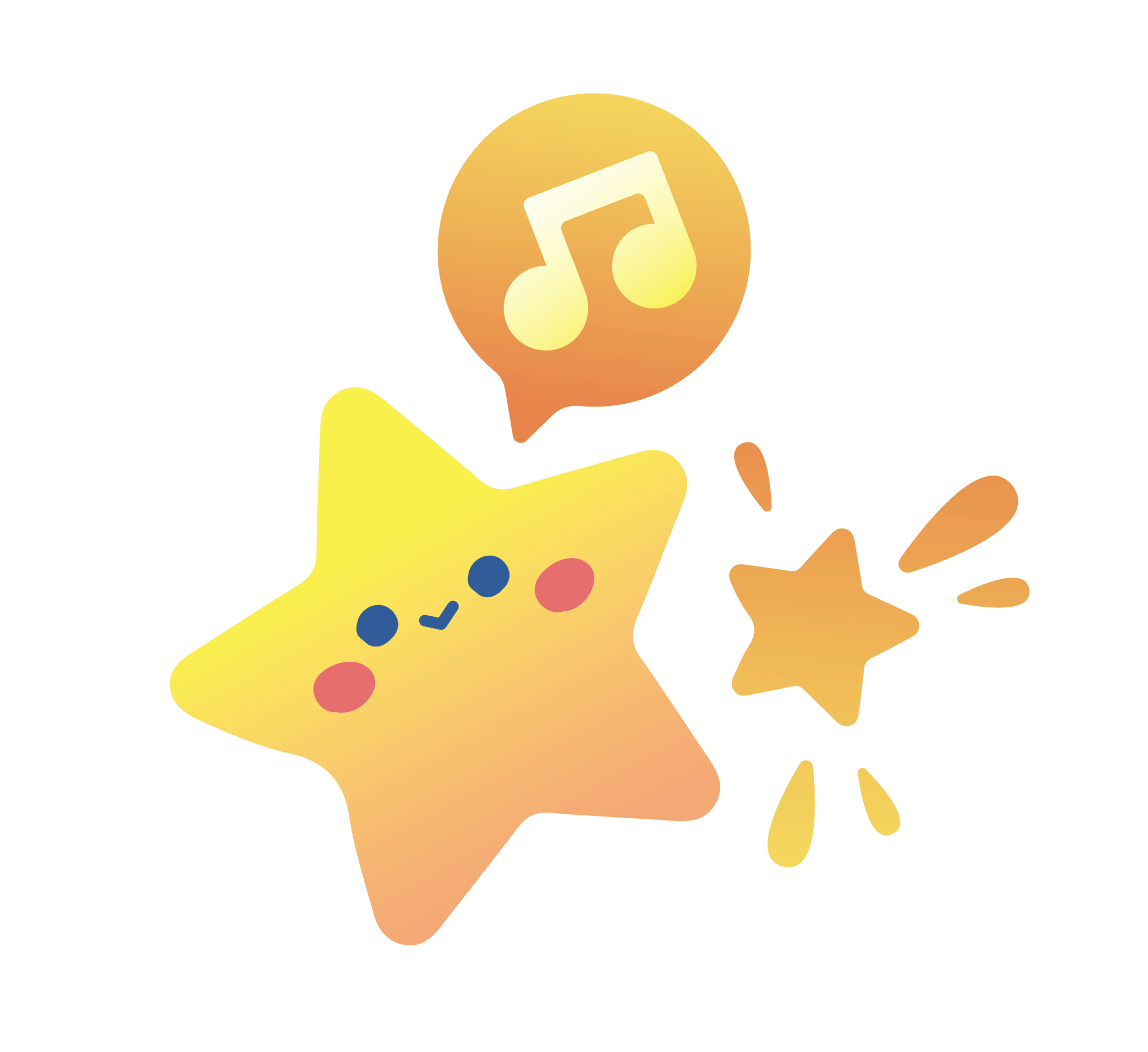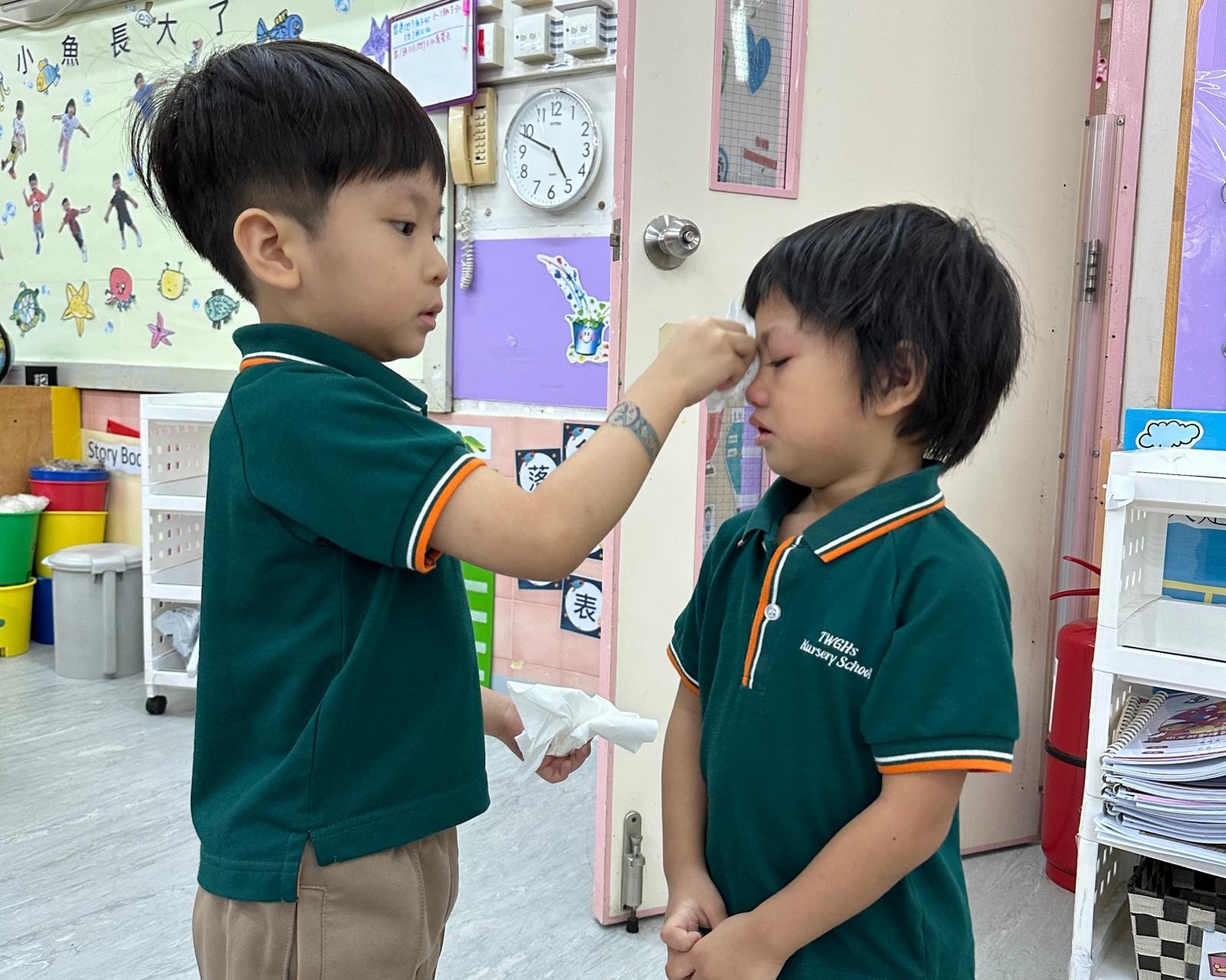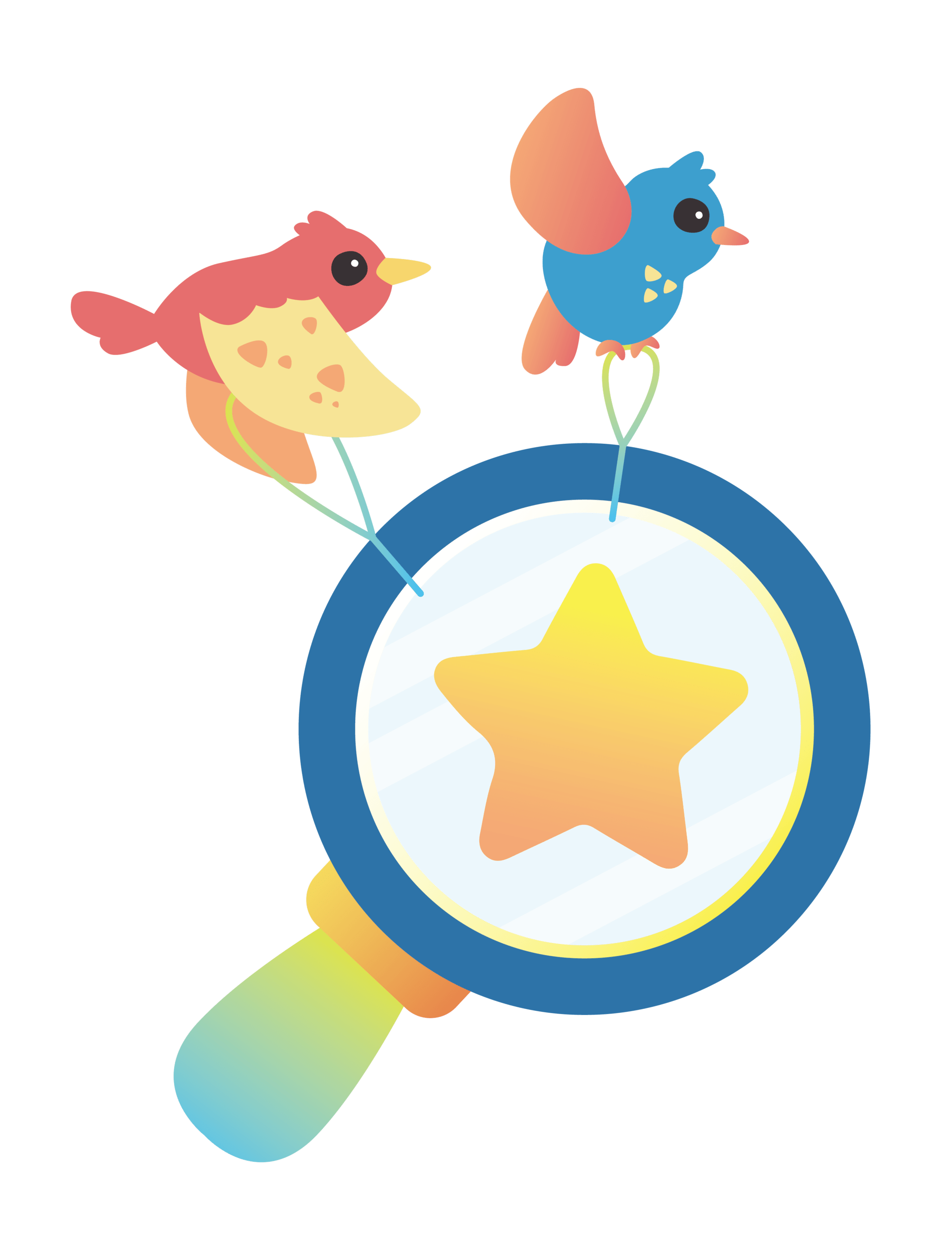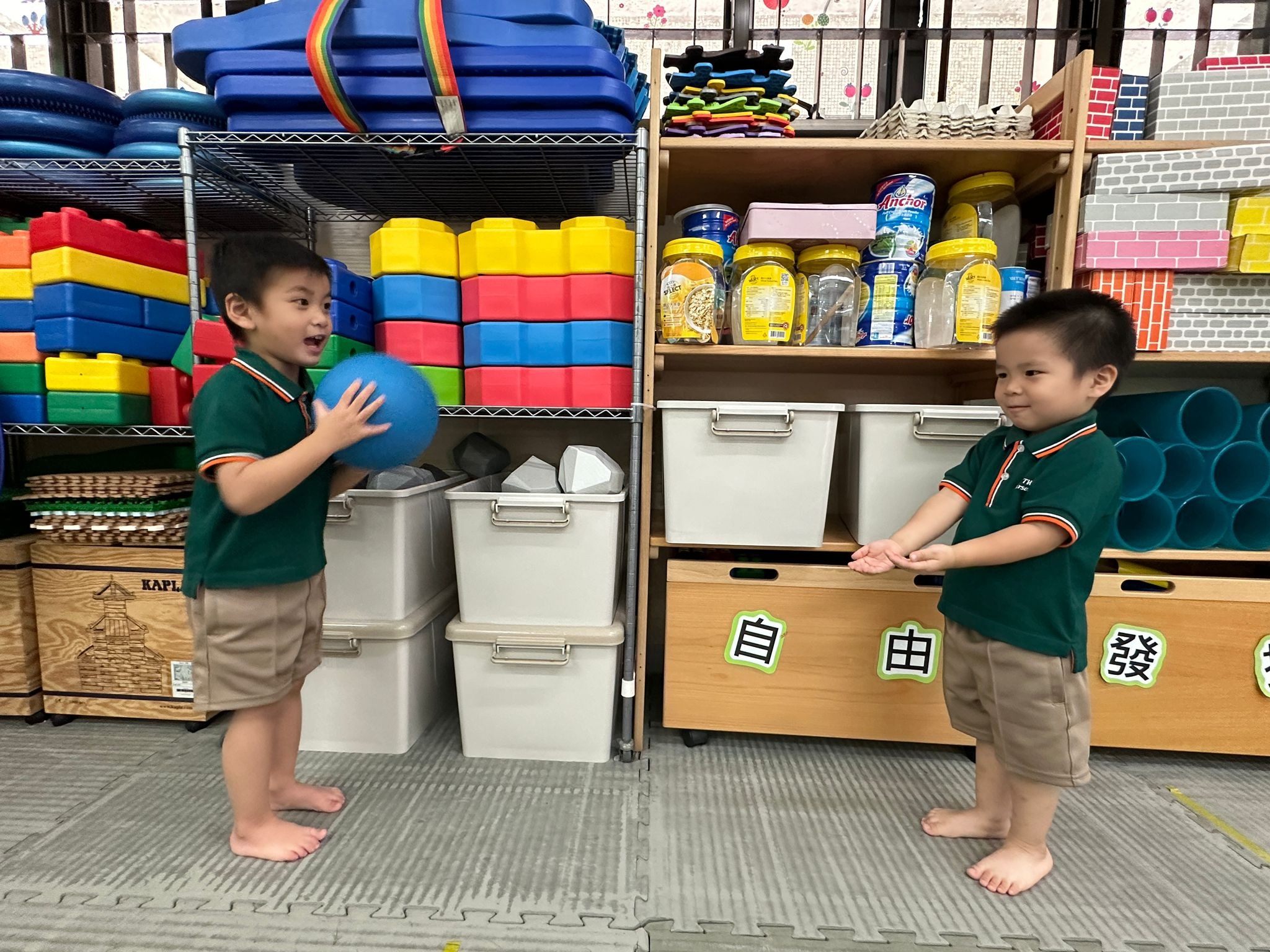 Curriculum Introduction
Curriculum Introduction
The curriculum utilizes interdisciplinary collaboration among Psychologists, Curriculum Officers, Principals, Senior Early Childhood Practitioners and Early Childhood Practitioners. They provide professional consultation and training on curriculum and teaching, and design various levels of courses that are diversified, balanced, and inspiring, with a spiral and comprehensive approach to enrich and consolidate children's autonomous and proactive learning, and establish a personalized and life-oriented learning mode.
The Nursery School also follows the “Kindergarten Education Curriculum Guide (2017)” to plan the curriculum, which avoids premature writing, excessive mechanical copying, and drill-based calculation exercises.

 Course Objectives
Course Objectives
| Encourage children to actively explore and establish learning abilities. | |
| Foster children's self-esteem and confidence, and developing their attitudes and abilities to interact with others. | |
| Promote healthy living habits and enhance physical coordination. | |
| Encourage children to appreciate the beauty in people and things, and express emotions through different methods, such as art and music movement. | |
 Curriculum Features
Curriculum Features
| The core value of the curriculum is centered around the student-through diverse activities, it cultivates student's learning interests and enhances their thinking ability to achieve a balanced development of moral, intellectual, physical, soical, and asethetic aspects. | |
| Using stories as the starting point for student's learning, combined with a life-oriented theme and teaching strategies designed to incorporate all language skills, including listening, speaking, reading and writing. | |
| To enrich children's life experiences, different forms of outdoor experiential activities are regularly arranged, such as park walks, shopping trips, field trips, parent-child field trips, volunteer activities and more. | |

 Montessori Education
Montessori Education
In Montessori education believes that children's hands are connected to their brains, and through the interactions involved, children can develop meaningful positive psychological effects and a spirit of spontaneous learning.
Since 2011, T.W.G.Hs has introduced the Montessori education philosophy to optimize environmental creation, strengthen the training of life skills for children, and provide them with time and opportunities for self-care. Through learning to take care of themselves, others, and the environment, children can develop a sense of order, improve coordination and concentration abilities, and also help stabilize their emotions.
 Emotional Education
Emotional Education
We emphasize on the emotional education of young children and have been offering a systematic emotional intelligence program since 2000. We aim to create a healthy emotional environment for children, help them identify and express different emotions, maintain a peaceful state of mind, focus on learning, and establish a positive self-image, leading to healthy physical, mental, and emotional development.
| We integrate emotional education into daily activities and life situations, guide young children to recognize and accept different emotions, and teach them the correct ways to express their emotions | |
| We offer the "Self-esteem and Confidence Growth" parent education program to help parents cultivate their children and establish correct attitudes and effective methods, enhancing parent-child relationships and boosting children's self-esteem and confidence | |
| Through parents’ talks, tea gatherings, and parent-child activities, we provide further assistance for parents in child-rearing. | |


 Sensory and motor activities
Sensory and motor activities

Through life skills training, play activities, and programmes, T.W.G.Hs encourages children to learn by using their senses and hands-on activities. Occupational therapists and speech therapists plan, consult, and guide various activities, and coordinate with the "Perception Motor Parent-Child Homework" developed by the Tung Wah Group of Hospitals Children's Services. The content covers various sensory recognition abilities, muscle endurance, stability of the arms and wrists, flexibility of the fingers, hand-eye coordination, and other abilities, to improve children's sensory recognition abilities and motor skills. It cultivates good emotional and cognitive abilities, trains concentration, exercises motor control, and establishes basic cognitive abilities, laying a good foundation for future reading, writing, and logical thinking.
 Whole Language Approach
Whole Language Approach
The "Whole Language Approach" integrates language elements throughout all aspects of the curriculum, allowing children to be exposed to written language in their daily lives. By using the strategy of reading stories out loud every day, children become interested in written language and build a network of meaning for words, which strengthens their foundation and memory of recognizing written language.
